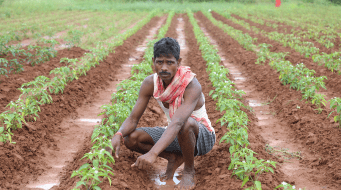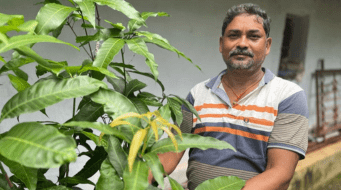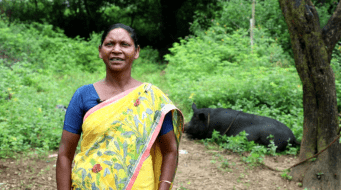World Population Day 2018 theme can help build resilience to climate change and ensure it gets the status of a ‘human right’
By Arjuna Srinidhi
 The battle for water amidst a growing population and heightened weather variability in India
The battle for water amidst a growing population and heightened weather variability in India
For 29 years, the World Population Day has been celebrated on the 11th of July, to raise awareness on the subject and its related issues. KC Zachariah, a senior demographer from India in the World Bank, is credited with the idea in 1989. A few years later, the world also adopted the United Nations Framework Convention on Climate Change (UNFCCC) in 1992, another significant step towards sustainable development of our society.
Population and climate change are both likely to keep growing for a few more decades, especially in the vulnerable least-developed countries. However, these factors are expected to slow down with better health and family planning. So, it is very apt that the theme for 2018 is “Family Planning is a Human Right”.
Currently, the world population is said to be close to 7.6 billion, of which about 2.7 billion reside in just India and China, which is more than the total population of the world in 1950. This growing population has been blamed for increasing greenhouse gases into the atmosphere, leading to global warming, heightened weather variability and extreme weather events.
The link of population with climate change is generally centered around the implications on greenhouse gas emissions. However, what is often left out is the relation between the changing demographics and increasing climate variability. From rapid onset events like cloud bursts, floods, hail storms to slow-onset disasters like droughts, changing agriculture patterns etc., an understanding of the demographics is essential to mapping who is at risk and to what.
As per a recent World Bank report, more than 800 million people now live in areas that will have moderate-to-severe vulnerability to climate change by 2050, of which about 75% will be in India alone. Given the speed of these demographic changes, associated resource depletion, growing vulnerabilities it is without doubt that family planning services are critical. And the 2018 World Population Day theme goes beyond previous efforts of calling it ‘voluntary’ to now ensuring it is ‘human right’.
However, the distinction between ‘family planning’ for reducing vulnerability towards the impacts of climate change and the argument that population growth should be slowed to curb increase in greenhouse gas emissions is an extremely important one in assigning responsibility, allocating resources and building capacities.
The debate around the implementation of the Paris agreement and mobilization of climate finance is often centered around issues like historical responsibility, share of carbon budgets, costs of adapting to climate change etc. However, the debate needs to evolve and, as with the ‘right’ based approach to family planning, also ensure resilience building as a ‘right’ that must be assured to all vulnerable communities. Vulnerabilities can vary significantly across regions, agro-climatic zones, affect different sections of the population differently, make women and children more vulnerable, etc. And proper planning and mobilization of resources for this is a ‘right’ and not just as a ‘enforced cap’ on per capita emissions from a historical justice point of view.
Such a distinction that addresses climate change vulnerability and population growth rates based on a right to building resilience rather than an international concern over increasing CO2 in the atmosphere could prove to be a game-changer for the developing world.
Related content:
https://grist.org/climate-energy/hey-u-n-climate-change-and-population-are-related/
http://www.dailymail.co.uk/news/article-5926771/World-Population-Day-2018-need-know.html





